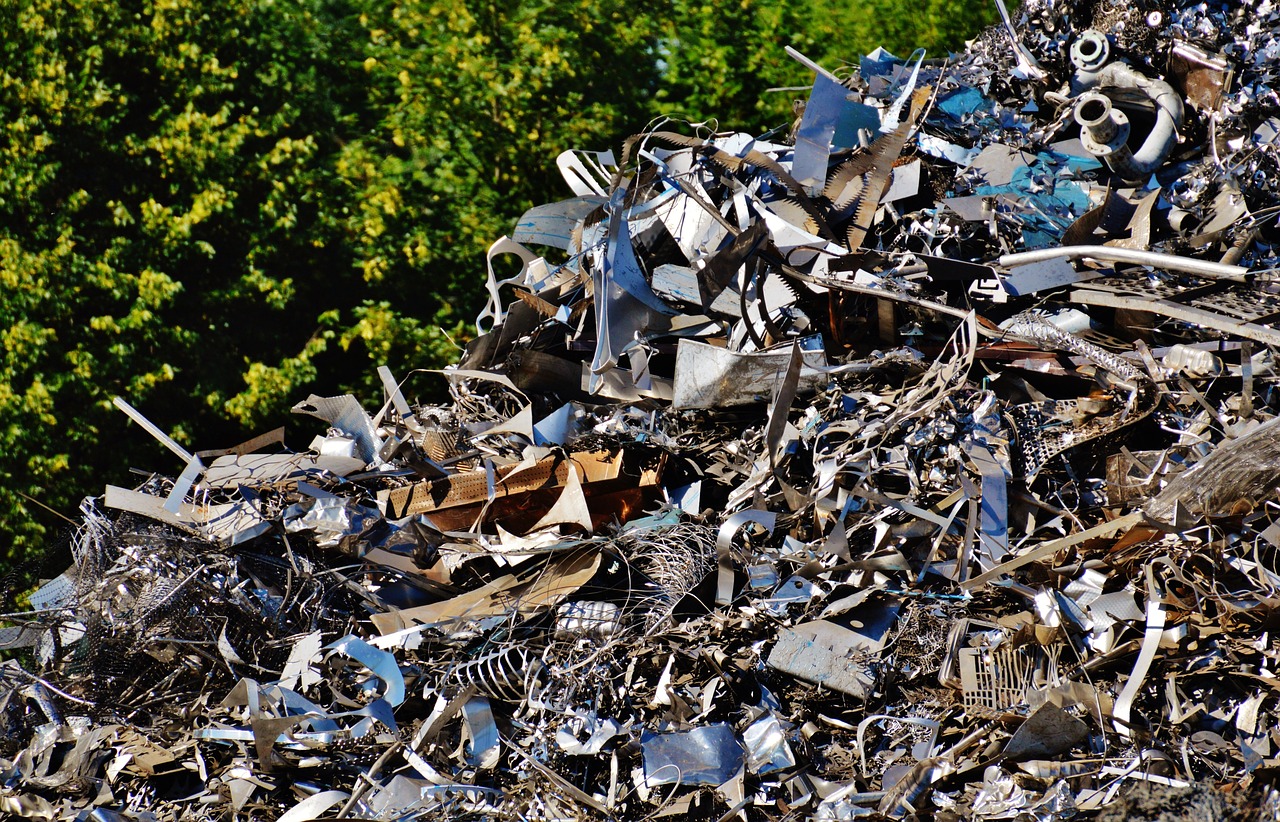Why Recycle Scrap Steel – Call A1 Scrap Metal Recyclers!
Willing to know why to recycle scrap steel? In the realm of sustainability and environmental responsibility, few industries stand as prominently as scrap metal recycling. At its core, recycling not only conserves natural resources but also significantly reduces energy consumption and greenhouse gas emissions.
Among the various materials recycled, scrap steel emerges as a vital player in the global effort towards a greener future. Scrap steel, sourced from end-of-life vehicles, appliances, construction sites, and industrial waste, is a versatile material with immense potential for recycling.
Unlike its primary production, which requires substantial energy inputs and generates significant carbon emissions, if you recycle scrap steel that consumes less energy and results in fewer emissions. This process plays a crucial role in reducing our carbon footprint and conserving valuable resources.
Moreover, if you recycle scrap steel that helps to preserve landfill space, mitigating the environmental impact of waste disposal. By diverting steel scrap from landfills, we not only reduce the volume of waste but also prevent the leaching of harmful substances into the soil and water systems.
This proactive approach to waste management promotes cleaner communities and fosters a sustainable future for generations to come. Let’s explore why should we recycle scrap steel.
Benefits to Recycle Scrap Steel – Pioneering Environmental Stewardship
Enterprises like A1 Scrap Metal Recyclers aim to recycle scrap steel which exemplifies the transformative impact of responsible recycling practices. Based on a commitment to sustainability, A1 Scrap Metal Recyclers harnesses the power of innovation and efficiency to process and recycle scrap steel effectively.
1. Environmental Benefits
If you recycle scrap steel extends far beyond waste reduction, we save approximately 74% of the energy required to produce steel from raw materials. This conservation not only reduces reliance on finite natural resources but also mitigates environmental degradation associated with mining and ore extraction.
Furthermore, If you recycle scrap steel that significantly cuts down on landfill waste, thus minimizing harmful environmental impacts such as soil and water contamination. This proactive approach to waste management promotes cleaner communities and fosters a sustainable future for generations to come.
2. Economic Advantages
Beyond its environmental merits, we recycle scrap steel that offers substantial economic advantages. The recycling industry, including companies like A1 Scrap Metal Recyclers, creates jobs, stimulates local economies, and contributes to overall economic growth.
By converting scrap steel into valuable raw materials for manufacturing industries, recyclers play a pivotal role in sustaining a circular economy model.
3. Resource Conservation:
We recycle scrap steel that helps conserve valuable natural resources like iron ore, coal, and limestone, which are essential in the production of new steel. By reducing the demand for these raw materials, recycling contributes to the preservation of ecosystems and habitats that would otherwise be affected by mining activities.
4. Energy Savings:
We recycle scrap steel which requires significantly less energy compared to producing steel from raw materials. This energy savings not only reduces carbon emissions but also contributes to global efforts to combat climate change. Industries and consumers alike can minimize their carbon footprint and support a more sustainable energy future.
5. Quality and Versatility:
We recycle scrap steel that can be used in various applications across industries, from construction to automotive manufacturing, without compromising performance or safety standards. This versatility makes recycled scrap steel a preferred choice for many industries seeking sustainable and cost-effective materials.
By recognizing these multifaceted benefits of recycling scrap steel, A1 Scrap Metal Recyclers are not just contributing to environmental conservation but also positioning themselves at the forefront of a sustainable economy. Through innovation and dedication to responsible recycling practices, they set a precedent for others to follow in building a greener, more resilient future.
Frequently Asked Questions
1. Why should we recycle scrap steel?
Recycling scrap steel offers several environmental, economic, and social benefits. It conserves natural resources, reduces energy consumption and greenhouse gas emissions, minimizes landfill waste, and supports sustainable manufacturing practices.
2. How do we recycle scrap steel?
The process typically involves sorting and shredding the scrap steel to prepare it for melting in a furnace. The molten steel is then purified and cast into new products or shapes. Advanced technologies are used to ensure that recycled steel meets quality standards comparable to virgin steel.
3. What is scrap steel recycling?
Scrap steel recycling involves collecting, processing, and reusing steel materials that have reached the end of their useful life. This includes steel from various sources such as old vehicles, appliances, construction materials, and industrial waste.
4. What are the environmental benefits of recycling scrap steel?
Recycling scrap steel helps conserve resources like iron ore and coal, reduces water and air pollution associated with mining and ore extraction, and saves significant amounts of energy compared to producing steel from raw materials.
The Final Words
Recycling scrap steel goes beyond mere waste management; it embodies a commitment to environmental stewardship and sustainable development. By supporting responsible recycling practices and companies like A1 Scrap Metal Recyclers, individuals and businesses alike contribute to building cleaner, more resilient communities worldwide.
Together, let’s explore why recycle scrap steel and pave the way for a brighter, greener tomorrow. For more information on how you can contribute to the recycling effort, visit A1 Scrap Metal Recyclers and discover how small actions can lead to significant environmental outcomes.

